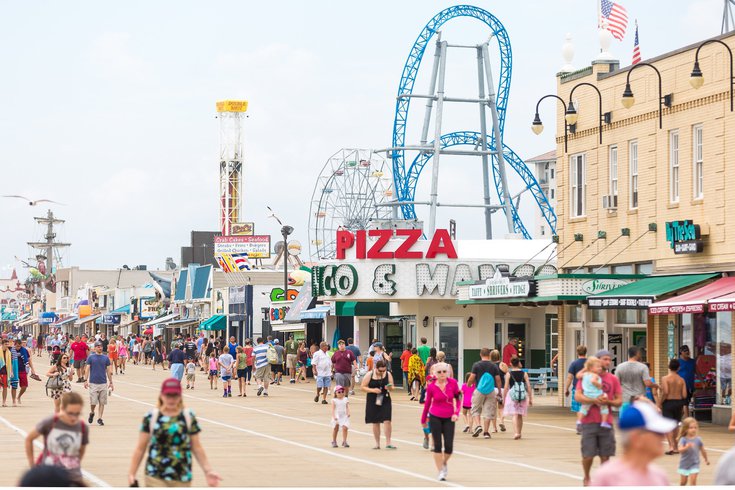
June 06, 2021
 Thom Carroll/For PhillyVoice
Thom Carroll/For PhillyVoice
New Jersey's public health emergency took effect in March 2020 at the onset of the COVID-19 pandemic.
New Jersey's COVID-19 public health emergency is officially no more.
Gov. Phil Murphy signed legislation and an executive order Friday that ended the state's COVID-19 public health emergency, calling the measure "a clear and decisive step on the path toward normalcy."
“The past 15 months have been a challenge, and I thank every New Jerseyan who stayed home, masked up, took precautions to keep this virus in check and got vaccinated for allowing us to get to this point," Murphy said.
The vast majority of executive orders issued by Murphy in accordance with the public health emergency will expire in early July.
But 14 pandemic-related executive orders will remain in place for the remainder of 2021, unless modified or rescinded by the governor. Those orders include allowing restaurants to continue serving food and beverages to customers in extended outdoor spaces, New Jersey's ban on evictions and foreclosures and the state's moratorium on all utility shutoffs.
The state will still be permitted to issue orders, directives and waivers that are related to COVID-19 vaccination and testing efforts, implementation of CDC recommendations, coordination of local health departments and other aspects of New Jersey's recovery from the pandemic. This authority, which is provided under the Emergency Health Powers Act, will be in effect until January 2022 and can be extended for 90 days if the state legislature passes a concurrent resolution.
Additionally, any administrative orders, directives or waivers that were issued in accordance with the public health emergency by the state health department on COVID-19 vaccinations and testing will remain in effect until January 2022 as well. This can also be extended for 90 days if the legislature passes a concurrent resolution.
Civil and criminal immunity provided to health care professionals and facilities, as well as existing waivers of regulations involving staffing ratios, overtime, shifts and vacation time, will expire Sept. 1. Civil immunity for health care professionals will only continue beyond Sept. 1 for those administering COVID-19 vaccinations and tests.
New Jersey's public health emergency took effect in March 2020 at the onset of the COVID-19 pandemic. Under the Emergency Health Powers Act, Murphy has been required every 30 days to extend the public health emergency to prevent it from expiring.
Murphy and Democratic leadership in the state legislature said last month that they were working on legislation that would do away with New Jersey's COVID-19 public health emergency in June while also providing the state with the necessary resources to manage its coronavirus vaccination and recovery efforts.
The expiration of the state's public health emergency comes as New Jersey ended all of its indoor gathering limits on Friday. New Jersey's indoor and outdoor mask mandates, as well as most of the state's COVID-19 pandemic restrictions, were lifted last month.
The state is just over 92% of the way towards its goal of having 70% of the eligible population — 4.7 million people — fully vaccinated by the end of June.
More than 4.33 million residents are fully vaccinated against COVID-19 and over 8.8. million doses have been administered, according to the state's coronavirus dashboard.
New Jersey recorded 430 new COVID-19 infections on Saturday, an almost 97% decline since early April. The number of COVID-19 hospitalizations in New Jersey dropped below 500 on Friday for the first time in eight months, a 78% decrease since early April.
Follow Pat & PhillyVoice on Twitter: @Pat_Ralph | @thePhillyVoice
Like us on Facebook: PhillyVoice
Add Pat's RSS feed to your feed reader
Have a news tip? Let us know.